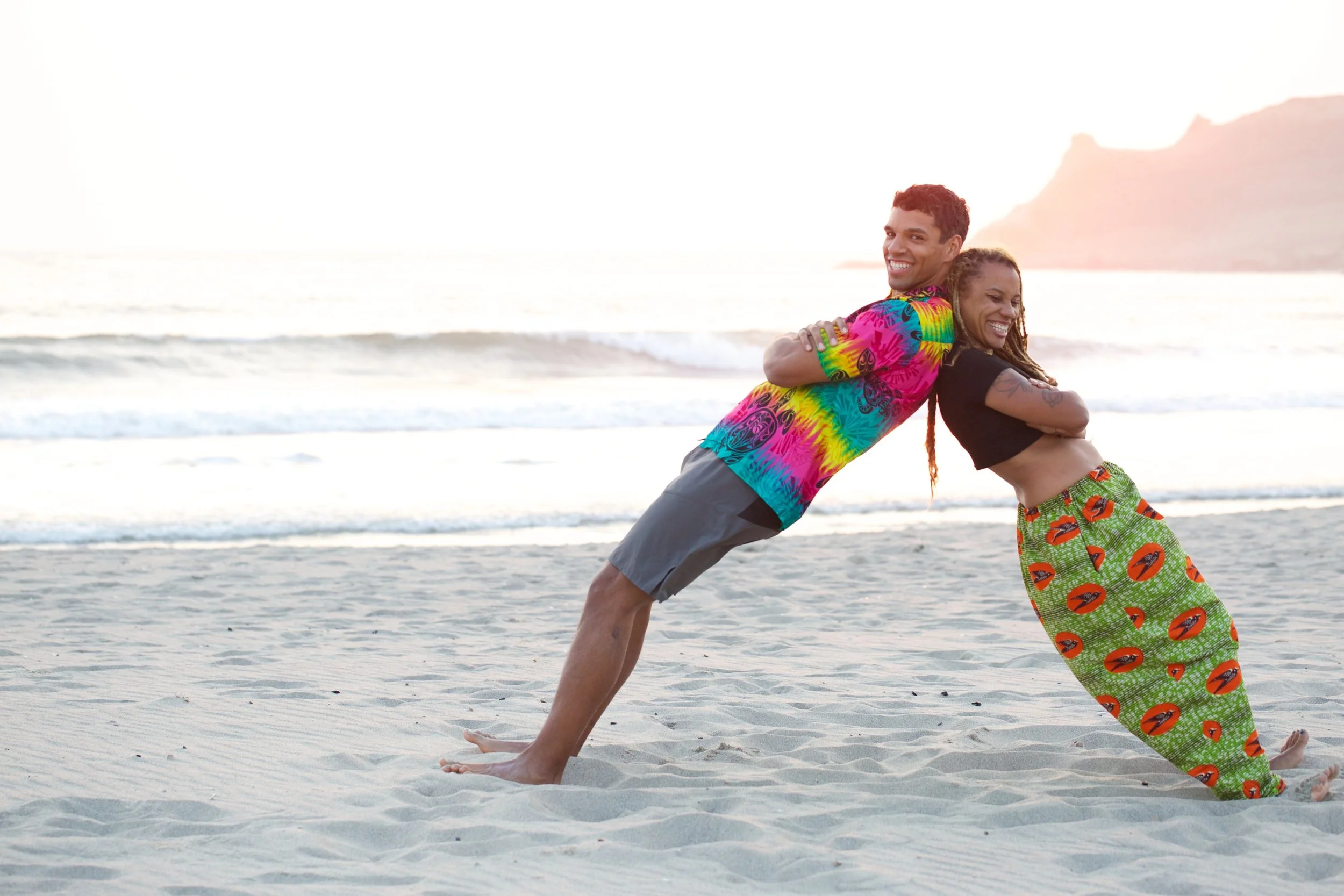Embracing Identity and Building Solidarity: My Conversation with Faith Briggs
It's funny how memories can bounce around in your brain—especially the embarrassing ones. (Like the time I realized "X" in math class wasn't pulled from XOXO and an invitation to start hugging the chalkboard.) In a not so recent chat with my friend Faith Briggs, I found myself revisiting so many personal epiphanies about education, finances, identity, and what it really means to support one another. Faith calls herself a "creative producer, all-around professional nerd," and frankly, I couldn't agree more. She's been a track athlete, studied African American Studies and Film Theory at Yale, and explored everything from environmental activism to documentary filmmaking with a keen eye for cultural nuance.
But let's rewind a bit. Faith and I started off talking about our college days—the illusions, the debt, and the challenges we faced. Like many of us, she marched off to an elite program, only to discover that scholarships and actual bills weren't exactly best friends. I felt every word when she shared how she'd walk out of the financial aid office, crying because the calculations for her family's situation didn't quite add up. I too have done that hurtful financial-aid march, and trust me, I know that every extra thousand dollars feels like a personal betrayal. It's a universal experience for anyone whose money situation seems allergic to fancy formulas. (The only handy math skill I left college with was: "My bank account minus tuition = negative all the dollars.")
Once we dusted off memories of tuition bills and "please send money" calls to the universe (our parents), we moved on to something bigger: identity and the importance of seeing and hearing one another. Faith made a point that really got me thinking—too often folks say, "Hey, how do we get more people of color involved in our event, our hiking club, or our non-profit?" Instead of forging real relationships, they scramble to create so-called "diverse" spaces that can feel forced. It's kind of like whipping up a dinner party and only when everyone's arrived, realizing you forgot to learn anyone's name—or their favorite foods. Coupling that with Faith's father's advice—"Are you listening, or just waiting to speak?"—I realized that real change is about curiosity, empathy, and building genuine connections with people instead of tokenizing them.
One big theme that came up was how everyone wants others to have "a nice tone" when discussing these deep-rooted injustices. Faith reminded me that our world can be a very real and sometimes threatening place, especially for people of color. It's no wonder emotions run high. If hearing frustration and outrage feels uncomfortable, imagine living your life with the undercurrent of repeated slights or even violence. That's the difference between "tone policing" and actual listening. Sometimes, a little bit of tension is the only way the deeper truths actually get heard. (It's a bit like giving up sugar in your coffee—you might grimace for a while, but it wakes you up in a whole new way.)
We also discussed what it means to be an ally—and beyond that, a "co-conspirator." Faith shared one of her favorite quotes by Lilla Watson: "If you've come here to help me, you are wasting your time. But if you've come because your liberation is bound up with mine, then let us work together." That's such a powerful idea: true solidarity isn't just about stepping in to give out advice or check off a "good deed" box. It's about recognizing that we all live in the same shaky boat, and if one side has a leak, guess what? Water's creeping in on everyone. So, yes, we all benefit when we fight for each other and build an equitable society.
One of my favorite moments was when Faith described how people ask her about "increasing diversity" in the outdoor space—like certain hiking or fishing communities that rarely see folks of color. She says the solution isn't as simple as "inviting them" into your comfort zone; it's about going to their events, stepping out of your bubble, and forging friendships on common ground. The difference between diversity and inclusion, as she put it, is acknowledging that you might need to change the shape of the "room" to truly welcome people, instead of just shoving round pegs into dusty square holes. (Because nobody likes being asked to fit somewhere they obviously can't squeeze into—kind of like me trying to wear pants from high school.)
Finally, the conversation took a soulful turn when she spoke about ancestors, heritage, and learning from our roots. As Faith put it: if she had the chance, she'd choose to meet her ancestors over her future lineage. Why? Because incorporating ancestral wisdom now can help shape a better path for those who come after us. It's a hard concept sometimes—it's tempting to try to leap into the future and see a world that's moved beyond these conversations. But she reminded me that there's power in looking back: learning from achievements, mistakes, and the brilliance of our forebears so we can be better stewards of their legacy going forward.
I left this conversation feeling that genuine solidarity is more than a hashtag, and real learning goes beyond the classroom. It's messy, it's personal, and it runs on empathy. Faith's story exemplifies that we're all still students of life, grappling with a complicated world. But when we center listening, mutual respect, and a willingness to step into new spaces, we can break down the walls (literal and figurative) that keep us apart. Whether it's bridging racial divides, tackling inequity in the outdoors, or simply remembering the right term for "concentration camp," each of us has a role to play in seeing one another fully. And that, in my book, is well worth the occasional uncomfortable conversation—and maybe a couple of sassy jokes along the way.
If you're hoping to dig deeper into daily habits that foster equity, check out Faith's downloadable habit tracker and equity toolkit at her website, faithbriggs.com. It's a simple, free resource that can spark real introspection about where and how we invest our time and energy. Because at the end of the day, the best way to show up for one another is to make growth part of our routine—one day, and one small step, at a time.

